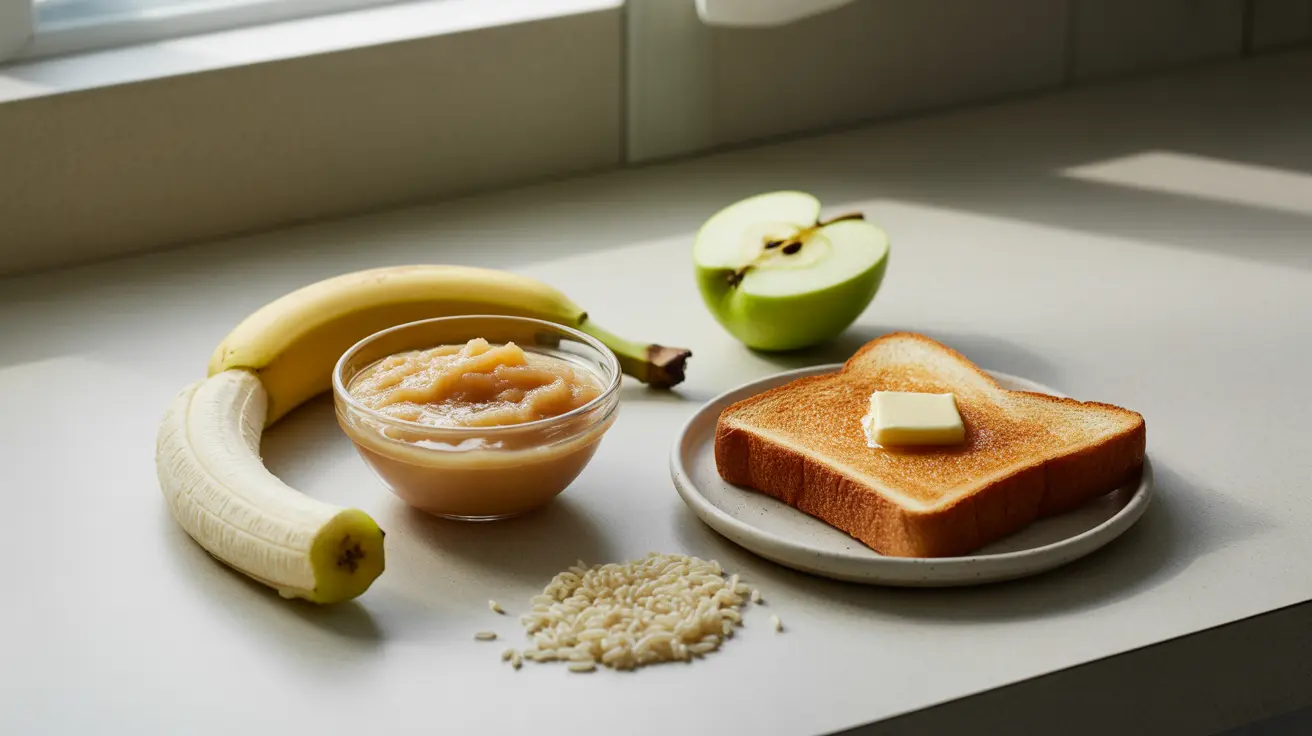Recovering from food poisoning can be challenging, and knowing what to eat during this delicate time is crucial for your recovery. The right food choices can help settle your stomach, prevent further irritation, and support your body's healing process while maintaining essential nutrition and hydration.
This comprehensive guide will walk you through the best foods to eat after food poisoning, when to reintroduce solid foods, and how to gradually return to your normal diet while avoiding potential setbacks.
The BRAT Diet: A Gentle Starting Point
The BRAT diet (Bananas, Rice, Applesauce, and Toast) has long been recommended as a safe starting point for eating after food poisoning. These foods are:
- Low in fiber
- Easy to digest
- Helpful in firming up stools
- Gentle on the stomach
While BRAT foods form a good foundation, they shouldn't be your only source of nutrition for more than 24-48 hours, as they don't provide all necessary nutrients for recovery.
Safe Foods for Initial Recovery
Easily Digestible Carbohydrates
Start with simple, bland carbohydrates such as:
- Plain white toast
- Saltine crackers
- Plain white rice
- Boiled potatoes (without skin)
Gentle Proteins
Once you can tolerate simple carbohydrates, gradually introduce lean proteins:
- Plain, boiled chicken breast
- Soft-boiled eggs
- Plain fish (baked or poached)
Hydration Essentials
Proper hydration is crucial during recovery from food poisoning. Focus on:
Recommended Drinks
- Clear broths
- Oral rehydration solutions
- Water
- Weak tea (without caffeine)
- Coconut water
Electrolyte Balance
Replace lost electrolytes through:
- Sports drinks (diluted)
- Electrolyte replacement solutions
- Clear soup broths
Foods to Avoid During Recovery
Certain foods can irritate your digestive system and slow recovery. Avoid:
- Dairy products
- Spicy foods
- Fatty or fried foods
- Alcohol
- Caffeine
- Raw vegetables
- High-fiber foods
- Sugary foods and drinks
Gradually Returning to Normal Diet
The transition back to your regular diet should be gradual and methodical. Listen to your body and progress only when you feel ready. Most people can return to their normal diet within 3-7 days, depending on severity of symptoms.
Frequently Asked Questions
What foods are best to eat after food poisoning to help my stomach recover?
The best foods to eat initially are bland, easy-to-digest options like bananas, rice, toast, and applesauce (BRAT diet). These foods help firm up stools and provide gentle nutrition without irritating your stomach.
How soon can I start eating solid foods after experiencing food poisoning?
You can typically start eating solid foods as soon as you can keep liquids down for several hours without vomiting, usually within 24-48 hours after symptoms subside. Start with small portions of bland foods.
What drinks are safe and helpful for rehydration after food poisoning?
Safe drinks include water, clear broths, oral rehydration solutions, weak caffeine-free tea, and diluted sports drinks. These help replace lost fluids and electrolytes while being gentle on your stomach.
Which foods and drinks should I avoid after food poisoning to prevent stomach irritation?
Avoid dairy products, spicy foods, fatty or fried foods, alcohol, caffeine, raw vegetables, and high-fiber foods. These can irritate your digestive system and potentially worsen symptoms.
How long does it usually take to return to a normal diet after food poisoning?
Most people can return to their normal diet within 3-7 days after food poisoning. The timeline varies based on symptom severity and individual recovery rate. Progress gradually and listen to your body's signals.




